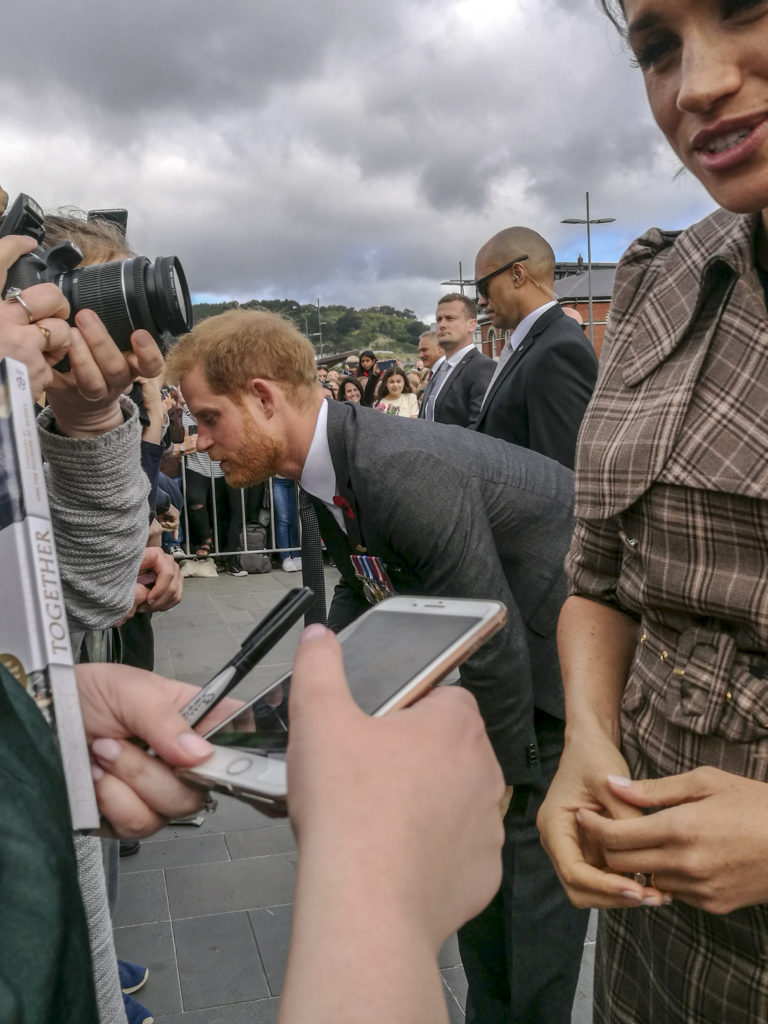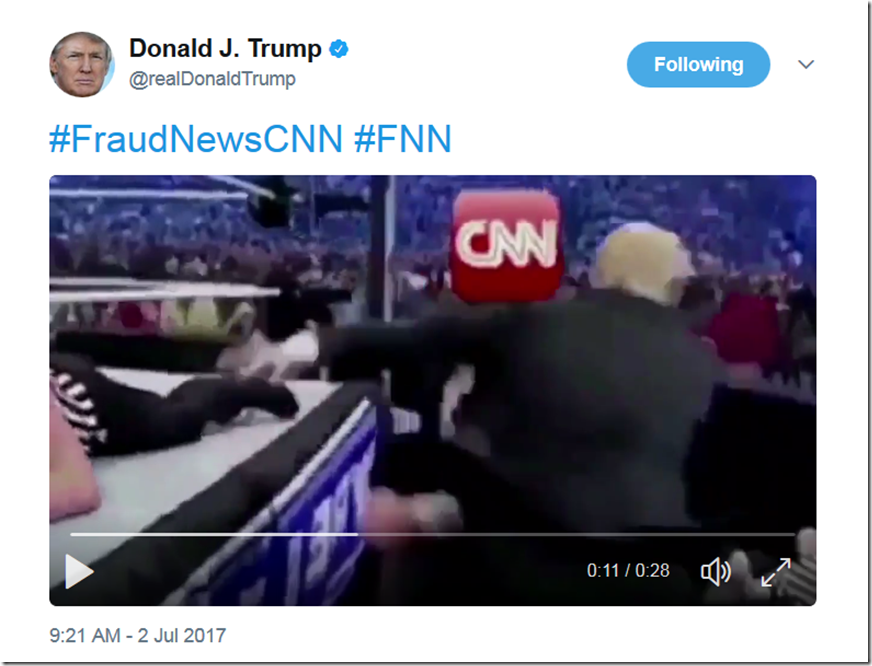Prince Harry, Meghan Markle: Why the Hypocrite Label?
If you are a high-profile environmentalist, are you a hypocrite for flying on a private plane?
What if your decision was based on your family’s safety and security? Does that still leave you open to being labeled a hypocrite?
What’s the line between being perceived as walking the walk and merely talking the talk?
These questions have been in the news this week, as Prince Harry finds himself defending some recent family trips amid public backlash.

The Duke and Duchess of Sussex chat with members of the crowd at the Wellington War Memorial in New Zealand on Wellington, New Zealand on Oct. 28, 2018.
In what could have been solely a celebratory launch of a new sustainable travel initiative (the first of his new Sussex Royal Foundation), Prince Harry instead this week was forced to address the ramifications of his own travel – specifically his use of private jets last month for two separate family vacations with his wife, Meghan Markle, and son, Archie.
Labeled as hypocrites by some, the actions of the Duke and Duchess of Sussex are being construed as following the “Do as I say, not as I do” model that has brought criticism and ire to the doorstep of other celebrities and well-known public figures who seem to suggest the rest of us follow one set of beliefs while they actually practice another.
Private flights have a greater carbon footprint than commercial flights, and the press quickly revealed the discrepancy, given the couple is known to speak out on environmental issues.
Harry addressed the criticism at an event on Tuesday in Amsterdam, where he joined representatives from five travel companies to launch the new project, Travalyst, which will encourage eco-friendly tourism, with travel practices that improve conservation, protect the environment, address climate change, and encourage sustainability.
“We are all responsible for our own individual impact,” Harry reportedly said at the event, adding, “We can all do better.”
Outrage and criticism create some of the best headlines, which, in turn attract readers. So, as much as this may be a legitimate beef among those working to better the environment, the media itself can be capricious in who they label as hypocrites and who gets a pass.
Are there ways you can minimize that perceived hypocrisy? Are there steps you can take to mitigate the angst and negative press?
Here are four elements that drive perception to consider:
Living What You Preach
More than 10 years ago, former Vice President Al Gore came under fire when it appeared that his lifestyle (his Nashville residence used considerably more energy than the average American home) flew in the face of his message about reducing our energy use, one of many points he made in his global-warming documentary “An Inconvenient Truth.”
Several years ago, Leonardo DiCaprio, an outspoken critic of policy inertia surrounding climate change, was similarly criticized for his use of private planes to accept an environmental award.
The criticism of the royal couple comes after several instances where their words about protecting the environment don’t seem to jive with their actions. In a post on Instagram earlier this summer, the Duke wrote, in part: “…every choice, every footprint, every action makes a difference.”
As the old saying goes, do you “walk the walk, or just talk the talk?” For instance, it’s understandable for the public to lambaste a celebrity who suggests putting solar panels on their 20,000-square-foot mansion makes them “green.” It also can be difficult to take to heart the admonitions of an eco-conscious royal who can jet to the south of France in a private plane and does.

Ed Begley Jr. shares some of his sustainable living practices in this picture @begleyliving
So, why do some celebrities who consider themselves to be environmental stewards get a pass when they drive a car to work or hop on a plane? Their efforts at sustainability resonate with the public, because they are honest. They don’t shy away from the hypocrisy, fully revealing their own complicity. Rather than sounding overly preachy or righteous (which leaves little margin for error), the public and media hail them for their efforts. Ed Begley Jr., who grows food in his backyard and collects rainwater for reuse, may be the best example. (You can get a sense of his approach in these 2007 and 2008 interviews.)
Context and Timing
Why would riding on a private jet – something royals have done from time to time (including Prince William and Kate Middleton, Duke and Duchess of Cambridge) – cause such ire this time around?
If the jaunts had happened right after Prince Harry and Meghan Markle’s wedding, in May 2018, perhaps no one would have blinked – given the popularity the couple was riding at the time. In the months since their wedding and preceding this current controversy, there was some media push back on some of the couple’s decisions when it came to access.
For instance, when they had their son in April, they did not follow the decades-old tradition of posing for photographs outside the hospital. The couple’s apparent desire for privacy has ruffled more than a few feathers of commentators and the public who believe royals have a role as public servants.
A flap over the cost of repairs to their new home Frogmore Cottage, which was borne in part by taxpayers, also played out before they ever jetted off to their summer getaways.
The royal couple seemingly enjoys the platform their celebrity gives them to push for projects and causes. (The duchess served as a guest editor for the September 2019 issue of British Vogue to highlight female trailblazers.) But, the duke and duchess also seem to want to keep the public at a distance.
There are various theories as to why this couple has increasingly faced criticism, with many supporters calling out racial bias on social media and in the press because of Markle’s African American heritage.
In the following video, CBS News contributor Tina Brown talks about how perhaps some missteps led to a slip in popularity. Some of the couple’s actions, for instance, may have created a disconnect with the public, which, in turn, led to a harsher reaction.
Owning Up
Elton John, who was a friend to Prince Harry’s mother, the late Princess Diana, rose to the defense of the couple. He revealed that he had paid for the flight – lest the public think they also footed the bill. (The couple received some support elsewhere, too.) In the fallout, Prince Harry has suggested the flights were for the safety of his family. Unfortunately, his message loses some of its punch when his older brother Prince William and his family are seen taking a commercial flight.
It also probably didn’t help that as this story was playing out, Swedish teen and youth climate activist Greta Thunberg (who Markle recognized as one of the trailblazers) was making her way across the Atlantic in a sailboat to attend the climate summit later this month at the United Nations in New York. She wanted a “zero-carbon” mode of transportation, which meant no gas-guzzling airplane.
Prince Harry may have short-circuited the news cycle if he had mentioned Greta’s efforts. He could have suggested his family had something to learn from her convictions. Or, he could have added a simple phrase to this week’s acknowledgement: “We will do better, just as we ask others to do, too.”
Existing Narrative
Unfortunately, Prince Harry is well aware of the media’s presence in his life. The press hotly pursued and followed his mother right to the time of her death on Aug. 31, 1997. Rarely does the public (in the U.K. or elsewhere) tire of the comings and goings of the royals.
So, undoubtedly he knew he and his wife were flying off to relaxation in private jets during a summer with several royal media story lines, including prominent headlines in tabloids (and other publications) about possible rifts between Prince William, Prince Harry, and their wives. For the press, these getaways were an easy way to extend that narrative.
If a controversy conveniently fits into a media narrative, and you want to change the public’s perception, you’ll have to work to modify the story line. It appears Prince Harry and Meghan Markle are aware of the need to address the backlash and improve their PR. This week, they hired a U.S. public relations and crisis management firm, which comes with a backstory of its own.
Even before any PR work gets under way, the couple could have done a few things that would have deflated the furor. They could have:
- Acknowledged the public perception about their actions quickly.
- Expressed their intent to do better and then do that by taking a commercial flight.
- Given a nod to Elton John’s gift in light of his longstanding friendship with Princess Diana and Prince Harry, and their desire to accept his generosity. They then could have indicated such future magnanimous gestures would be considered for their environmental impact.
- Indicated that the royal family, as a whole, is committed to protecting the environment, but that the controversy has reminded them they can do more. Prince Harry could even have given a nod to his father Prince Charles, who has spent decades supporting sustainability projects. His latest was a recent collaboration with sustainable fashion designers to launch a fashion line made of nettles from the royal grounds.
Moving forward, the Duke and Duchess may indeed find a way to strike a balance between their private and public life. However, if they plan on advocating that “every action makes a difference” in the fight to save the environment, they will need to do a better job of assessing each one of their moves in light of the advice they are giving others.
